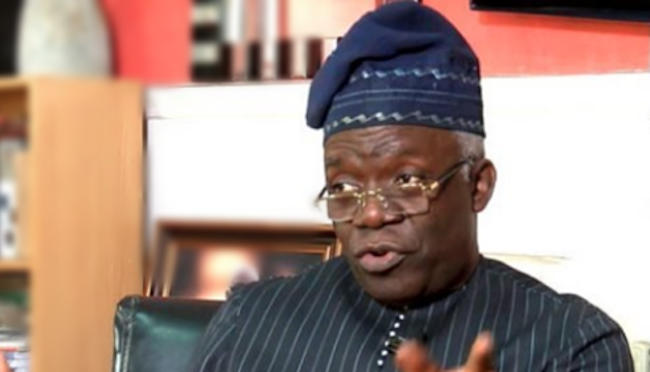Politics
Falana wades into dispute between Wike, Kingibe on FCT affairs

Senior Advocate of Nigeria, Femi Falana intervened in the dispute between Ireti Kingibe, a senator who represents the Federal Capital Territory, and Nyesom Wike, the minister in charge of that territory.
In a statement released on Monday, Falana underlined that the FCT minister’s performance of duties was not subject to Kingibe or the National Assembly’s oversight.
The FCT legislator had already cautioned Wike to refrain from carrying out any tasks without the approval of the National Assembly.
Kingibe said that the FCT minister lacks executive authority and is instead bound by the laws passed by the nation’s legislative branch.
She had said, “You also have to remember that the minister of the FCT – I’m not sure we have had a former governor as a minister, I think we have had one. Some [former] governors may think that as an FCT minister, the minister does not have executive powers. He works hand-in-hand with the National Assembly and the president to administer the FCT.”
Read Also: Falana demands Emefiele’s prosecution over naira scarcity
However, Falana, analysing the constitution, asserted that Kingibe was mistaken when she claimed that the minister’s performance of his duties was subject to the National Assembly’s approval.
He said, “The distinguished senator is wrong. The power of the executive with respect to the FCT lies with the President. Making laws and passing laws for the FCT are the business of the National Assembly.
“Section 299(a) of the constitution provides: The provisions of this constitution shall apply to the Federal Capital Territory, Abuja as if it were one of the states of the Federation; and accordingly
“(a) all the legislative powers, the executive powers and the judicial powers vested in the House of Assembly, the governor of a state and in the courts of a state shall, respectively, vest in the National Assembly, the President of the Federation and in the courts which by virtue of the foregoing provisions are courts established for the Federal Capital Territory, Abuja.”
He further explained that since the executive powers of the FCT are vested in the President who then delegates them to the minister as he pleases, the minister can act in the capacity of the President who is the governor of the FCT.
Falana said, “The executive powers of the FCT are vested in the President, the legislative powers are vested in the National Assembly, while the judicial powers are vested in the High Court of the Federal Capital Territory.
“To that extent, it is very wrong to say that since there is no governor in the FCT, the executive powers are vested in the National Assembly; those powers are vested in the President.
“So, whenever the president appoints a minister, the minister is performing in the powers delegated to him or her by the President.”
Join the conversation
Support Ripples Nigeria, hold up solutions journalism
Balanced, fearless journalism driven by data comes at huge financial costs.
As a media platform, we hold leadership accountable and will not trade the right to press freedom and free speech for a piece of cake.
If you like what we do, and are ready to uphold solutions journalism, kindly donate to the Ripples Nigeria cause.
Your support would help to ensure that citizens and institutions continue to have free access to credible and reliable information for societal development.
























